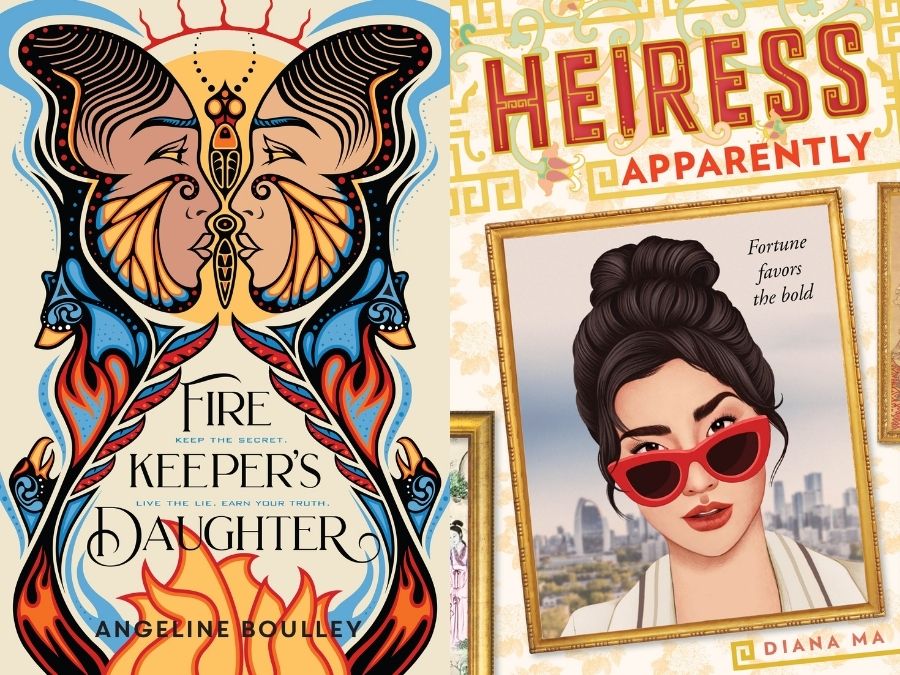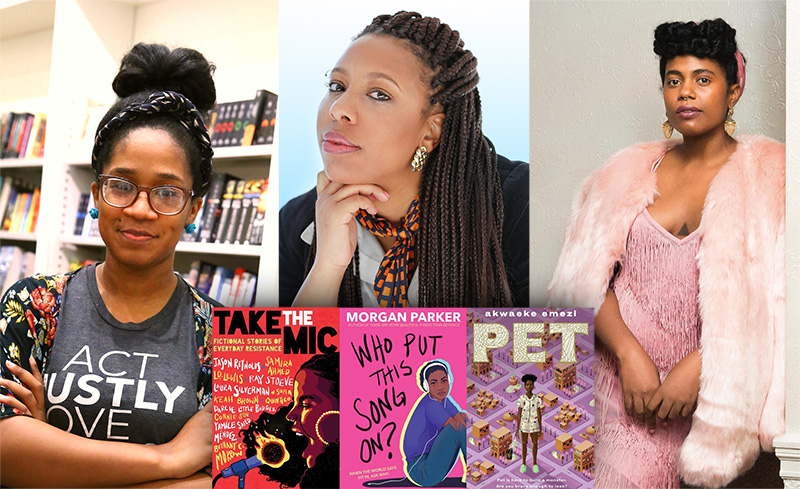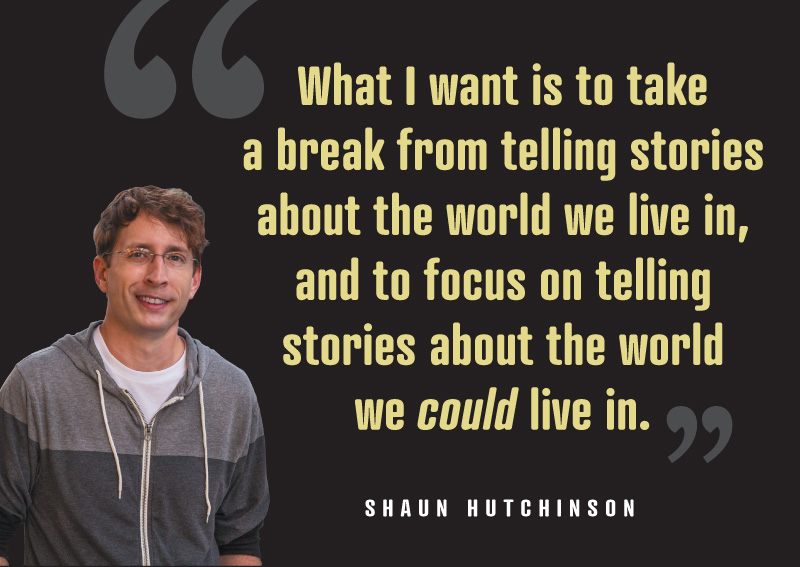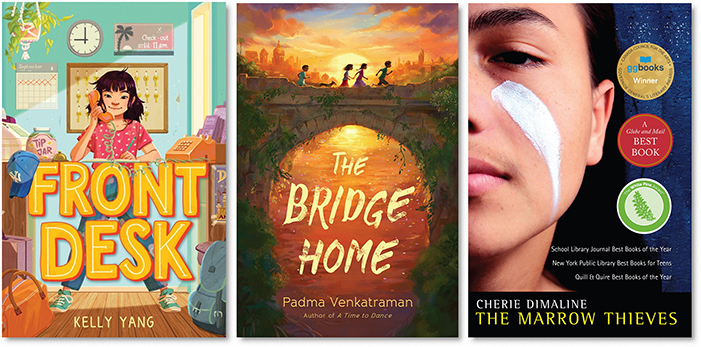“You Mean Not Everybody Feels Like This?”: Self-Discovery Through Writing, a guest post by Andrew Joseph White
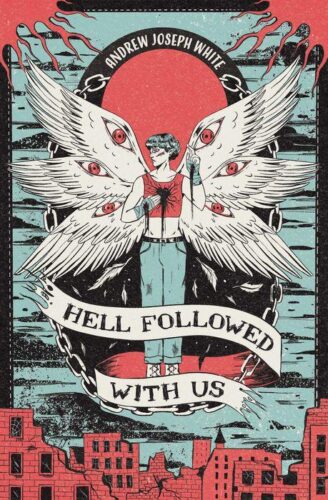
When I graduated with my master’s degree in creative writing, my parents held a celebratory cookout, complete with balloons, extended family, grad-themed snacks, the usual. But there was something else on the center table, between the chips and M&Ms: crinkled booklets and crude pencil drawings, handwritten crayon zines, stacks of wide-ruled paper stapled together. Some of them were dated—the oldest, from 2013, was a drawing from around my fifteenth birthday. Most of them weren’t—one sported handwriting that matched my kindergarten diary, but I can’t be sure.
Turns out, for the party, my parents had combed the house for my earliest attempts at books. My debut novel would be releasing less than a month after graduation, after all. It was a fitting send-off. Look how far you’ve come, the gesture said. We’re so proud of you.
ADVERTISEMENT
ADVERTISEMENT
But it also said, Look how much you’ve changed.
Because I almost didn’t recognize the name written on the covers. I had to remind myself that it had been my name once.
It said, Look how much you’ve learned about yourself.
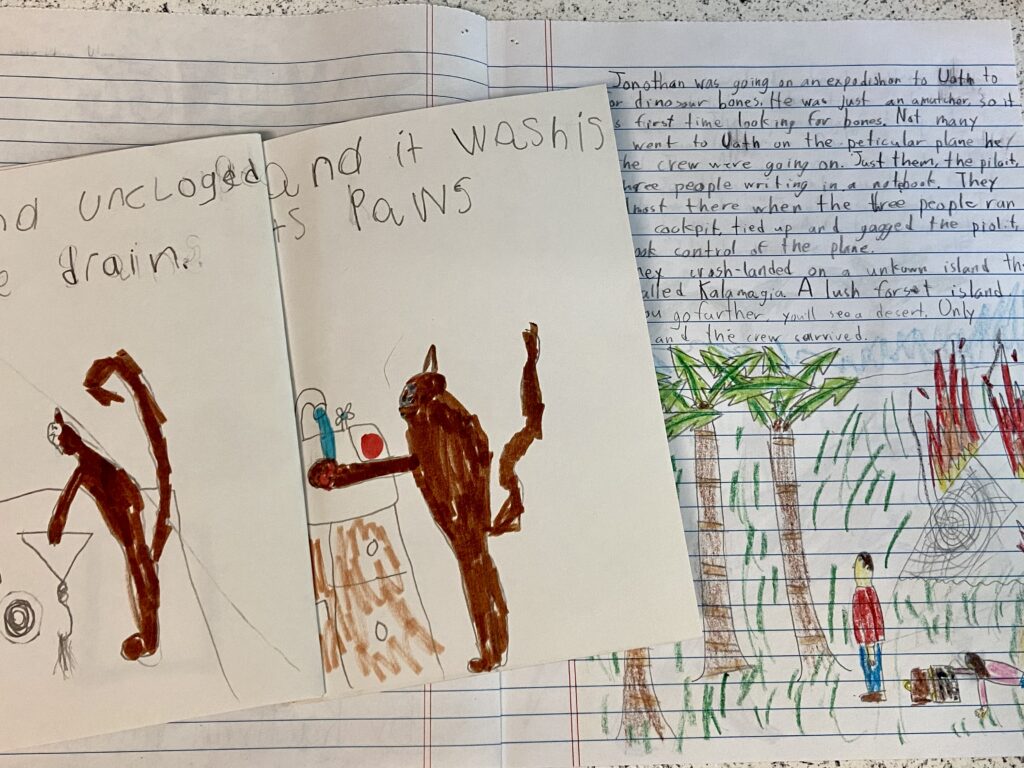
See, my debut novel, Hell Followed with Us, is not special because it’s a post-apocalyptic horror novel. In all honesty, when it sold to a publisher, there had been so many post-apocalyptic or dystopian young adult novels that the genre had nearly burnt out. What makes the book special is in the people it holds up as heroes: queer people, trans people, autistic people. And when I put an advance reader’s copy next to those little booklets, it’s surreal to think about the gap between them. Not just in my writing ability, but who I was when I wrote them. When I was seven years old, scrawling “Saving the Dinos” in colored pencil on loose leaf paper, I didn’t know I was queer, trans, or autistic.
But I was writing, and that made all the difference.
Here’s the thing: I spent a lot of my life pretending I was no different than anyone else. Sure, I juggled sensory sensitivities and constant social exhaustion, feeling more like an alien than a human. Sure, I was so disconnected from my body that sometimes I wished I could burn it up to escape what it meant. But I never said anything about it. Why would I? As far as I knew, everybody felt that way. If everyone else was so good at gritting their teeth and sucking it up, I figured I had to do the same. It was through writing that I realized, just maybe, that wasn’t the case.
Looking back, there was a pattern. A sequence of events that happened over and over, each time teaching me a little more about myself. It’s almost like my heart knew something before my mind did. It pushed me to write about things I wasn’t ready to face—so that when the time to face it finally came, I’d at least have a place to start.
When I was twelve, I started writing about queer people. This went on for years. I almost categorically refused to write about straight people, and when I did, it felt forced. It wasn’t until I was fifteen that I had the presence of mind to look back at the characters I’d created and, combined with the love I realized I could feel for any gender, admit that I’m queer too.
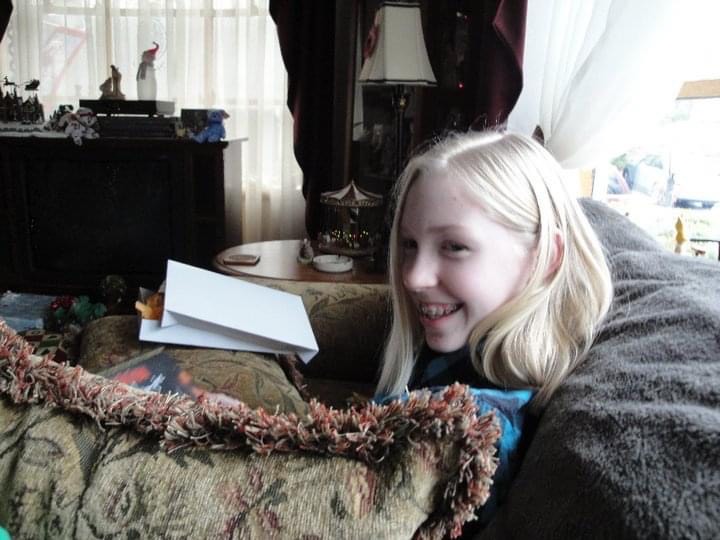
When I was sixteen, I started writing about trans people. I wasn’t open about it. It felt like a dirty secret, “using” trans characters to sort through my girlhood, like I was coopting the trans struggle for my own issues. It took until I was nineteen to accept that my issues were trans issues. Reading back over three years of denial wrapped up in those half-finished books, I cried.
And when I was twenty, I wrote my first autistic character (at least, the first character I’d openly call such—some things are obvious in hindsight). When you read Hell Followed with Us, you’ll get to meet him. The more research I did, the more I listened to autistic people so I could write him authentically, the more familiar it all sounded. Turns out, not everyone struggles the same way I do. I am not uniquely broken. My brain just works differently.
Writing didn’t just teach me. It saved me from a lifetime of confusion, dysphoria, and self-hatred.
When I was growing up, if I had a big feeling about something, books were the first place I turned…but there was nothing on the shelves that could have helped me learn about being queer, or trans, or autistic. And “growing up” wasn’t that long ago for me. I’m only twenty-three. I graduated high school in 2016! Writing was the only avenue I had for learning about myself, and it took me until my early twenties to untangle the knot the world had tied me into
.
I’m blessed to be an author. I hope my work helps kids untangle themselves. I hope it inspires them to discover all the parts of themselves the world hasn’t made space for yet.
I hope they have an easier time of it than I did.
Meet the author
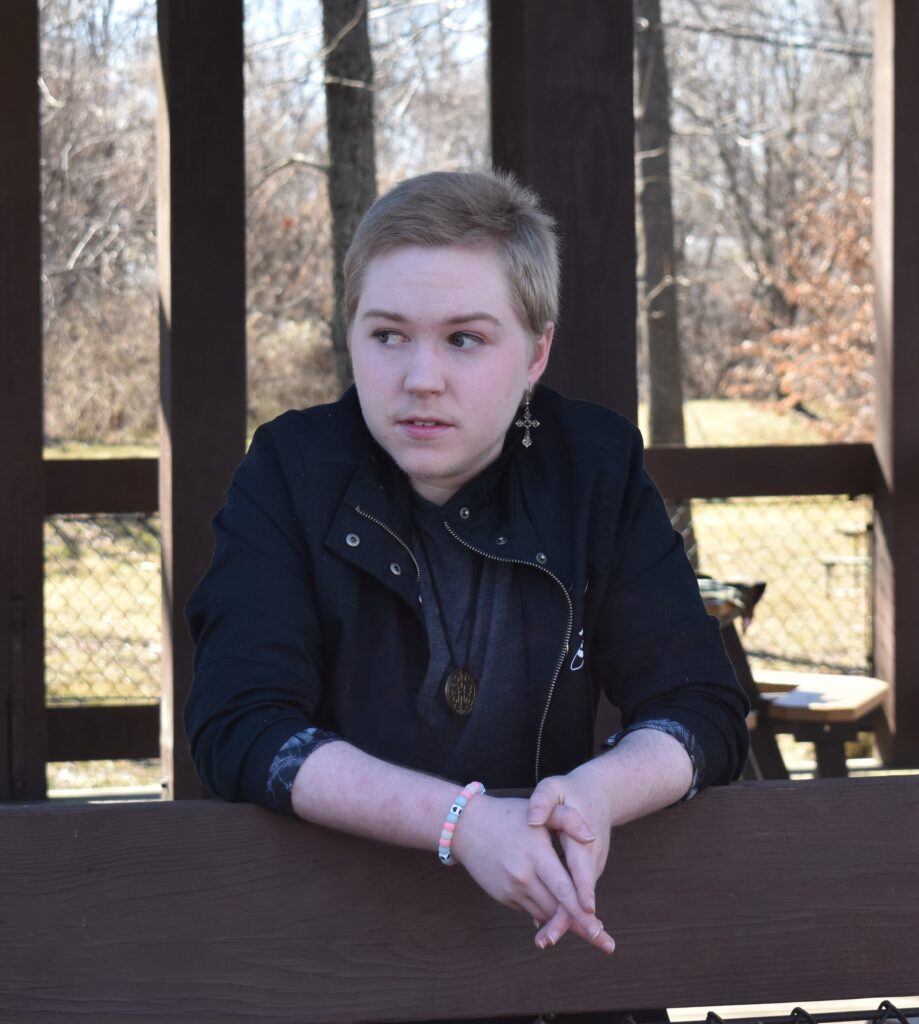
ADVERTISEMENT
ADVERTISEMENT
Andrew Joseph White is a queer, trans author from Virginia, where he grew up falling in love with monsters and wishing he could be one too. He is a graduate student in George Mason University’s Creative Writing program and has a habit of cuddling random street cats. Andrew writes about trans kids with claws and fangs, and what happens when they bite back. Hell Followed with Us is his debut novel.
https://andrewjosephwhite.com/
https://www.instagram.com/ajwhiteauthor/
Twitter @AJWhiteAuthor
A Note on Representation
Hell Followed with Us has a wide range of characters, made up of varying types of people. If you’re planning on highlighting HFWU for its representation, please focus on Benji’s gay/achillean and transgender/transmasc identities. There is also autistic representation in this book, and I would love it if you included HFWU on such lists, but be aware that it centers on a major side character (a love interest w/ several chapters of POV).
About Hell Followed With Us
A furious, queer debut novel about embracing the monster within and unleashing its power against your oppressors. Perfect for fans of Gideon the Ninth and Annihilation.
“A defining voice of our generation.” –H.E. Edgmon, author of The Witch King
“Hands down the best YA horror book I’ve read.” –Aden Polydoros, author of The City Beautiful
“A chimera of horror, romance, and something stranger.” –Rose Szabo, author of What Big Teeth
“A timely and riveting tale.” –Ray Stoeve, author of Between Perfect and Real
Sixteen-year-old trans boy Benji is on the run from the cult that raised him—the fundamentalist sect that unleashed Armageddon and decimated the world’s population. Desperately, he searches for a place where the cult can’t get their hands on him, or more importantly, on the bioweapon they infected him with.
But when cornered by monsters born from the destruction, Benji is rescued by a group of teens from the local Acheson LGBTQ+ Center, affectionately known as the ALC. The ALC’s leader, Nick, is gorgeous, autistic, and a deadly shot, and he knows Benji’s darkest secret: the cult’s bioweapon is mutating him into a monster deadly enough to wipe humanity from the earth once and for all.
Still, Nick offers Benji shelter among his ragtag group of queer teens, as long as Benji can control the monster and use its power to defend the ALC. Eager to belong, Benji accepts Nick’s terms…until he discovers the ALC’s mysterious leader has a hidden agenda, and more than a few secrets of his own.
ISBN-13: 9781682633243
Publisher: Peachtree Teen/Peachtree
Publication date: 06/07/2022
Age Range: 14 – 17 Years
Filed under: Guest Post
About Amanda MacGregor
Amanda MacGregor works in an elementary library, loves dogs, and can be found on Twitter @CiteSomething.
ADVERTISEMENT
ADVERTISEMENT
SLJ Blog Network
At Last! Mr. Schu on The Yarn Podcast
Fuse 8 n’ Kate: Ginger Bear by Mini Grey
Team Unihorn and Woolly | This Week’s Comics
Parsing Religion in Public Schools
ADVERTISEMENT



